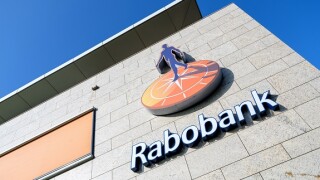Worker organisation is cropping up more and more in companies' communications to investors, giving environmental, social and governance bankers yet another thing to think about.
References to unionisation grew at an even faster rate than climate change in September, according to research from Deutsche Bank into environmental, social and governance topics.
It's easy to see why it would be a hot topic. The trend comes as worker shortages are causing supply chain issues around the world. GlobalCapital recently suggested that ESG-focused investors in private equity funds should put pressure on managers to do more to help low paid workers and those that are laid off.
Even investment bankers have been calling for better working conditions, though the chances of them forming a union are surely slim.
There are different motivations behind looking at ESG factors when making investment decisions. One is that it rewards and incentivises good behaviour and the creation of assets that are in the public good. Another is that it helps investors to avoid risks associated with climate change or corporate governance issues.
In May, the New York State Common Retirement Fund urged fellow investors in Amazon.com to vote for a motion, Proposal NINE, that called for the company to create a civil rights, equity, diversity and inclusion audit.
In its SEC filing supporting the proposal, the pension fund manager cited a complaint against anti-union practices used by Amazon "such as retaliating against pro-union employees and threatening widespread layoffs if employees voted for the union".
The investor pointed out that this appeared to conflict with Amazon's global human rights principles, which explicitly recognise "employees' right to join, form, or not to join a labor union [...] without fear of reprisal, intimidation, or harassment".
The New York fund emphasised the risk posed to investors by the situation, rather than the broader social benefits of allowing employees to organise.
"Companies, and in particular Amazon, face risks related to their corporate policies, practices, products, or services being or perceived to be discriminatory, racist, or increasing inequalities," the investor wrote.
Not a typical banker
Perhaps this will be a topic for Margot d’Ancona-Roesink to engage in her new role as global head of sustainable capital markets at Rabobank in Utrecht. She is taking over from Maarten Biermans, who is leaving for a debt fund that invests in the shipping industry.
D'Ancona-Roesink certainly seems open to new ideas. She told GlobalCapital that she is "not a typical banker" and that sustainable finance professionals "need to think differently and more broadly".
She also has some relevant experience in employer-worker relations, having worked in Rabo's human resources team, where she was head of young talent.
Build back Deutsche
Meanwhile, Deutsche Bank is setting the stage for a resurgence in UK corporate finance, having made a number of investment banking hires in London recently.
Enter, stage left, Derek Shakespeare from Barclays, who is taking up an EMEA M&A chairmanship in January, and UK investment bankers Abid Chaudhri and Ed McBride from BNP Paribas and Citi, respectively, who join as managing directors in December.
Chaudhri and McBride's new boss, Daniel Ross, himself only officially started in the role of head of UK and Ireland investment banking at Deutsche in August, three months after his move from Barclays was announced.
The build-out comes at the end of a thorough restructuring at Deutsche Bank, which is pinning its hopes on winning equity capital markets work without the cash equities trading business that it jettisoned in 2019.
"So much trading nowadays is done in algo form, so secondary market insight is less relevant than it used to be,” Deutsche's co-head of EMEA investment banking and global co-head of capital markets, Henrik Johnsson, told GlobalCapital in a recent interview.
Or, to quote a senior debt capital markets banker speaking with GlobalCapital a couple of weeks ago: "There must be something structurally wrong with cash equities if Deutsche is not doing it any more."
Whatever the merits of that view, the fact is that Deutsche has continued to do robust business in ECM since the restructuring. In the UK, the firm was recently global co-ordinator, alongside Bank of America and HSBC, on an €825m convertible bond issued by British Airways and Iberia owner IAG and, alongside JP Morgan, on the initial public offering of space technology vehicle Seraphim Space Investment Trust.
Elsewhere in Europe, the firm was global co-ordinator on a $2.14bn capital raise for Lufthansa and a €2.5bn rights issue to finance Veolia Environment's merger with Suez.
“We’ve built a boutique ECM model with a sales and research effort," said Johnsson. "Every time we look to add value on every transaction."
More people news
-
Japanese bank brings in credit veteran
-
Pair of managing directors are due to start at the German firm in December
-
Nordea hires two more bankers for its levfin team
-
Rabobank appoints Margot d’Ancona-Roesink as global head of sustainable capital markets
-
Banker was in charge of wealth management and global markets as well as real estate asset management at the Greek bank until 2019
-
Banker is not the first Barclays banker to sign up for a transfer to the German firm this year








